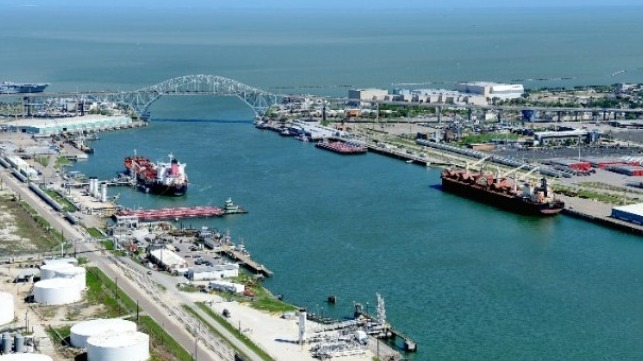
The Port of Corpus Christi in Texas is working to become of the first in the energy transition and drive decarbonization through plans to convert the Howard Javelina refinery services facility to carbon-neutral hydrogen production. The port and Howard Midstream Energy Partners executed a memorandum of understanding to convert the facility as part of commitments to delivering clean and reliable energy.The Port of Corpus Christi and Howard hope to scale hydrogen production for exports to overseas demand centers.
Howard acquired the treating and fractionation Javelina plant that extracts olefins, hydrogen and natural gas liquids (NGLs) from the gas streams produced by local refineries in February from a subsidiary of MPLX LP. The Javelina facility is connected to all six refineries in the Corpus Christi area by pipeline and controls approximately 60 million cubic feet per day (MMcf/d) of hydrogen production through a combination of hydrogen entrained in the refineries’ waste gas that the facility processes, and hydrogen produced through a steam methane reformer process. This hydrogen is currently sold back to refineries and other industries where it is used to remove impurities like sulfur during the refining process.
“Our future as the ‘Energy Port of the Americas’ starts with building a scalable carbon capture and storage solution to serve the needs of our existing customers and convert more Texas gas into carbon neutral hydrogen for the global markets,” said Sean Strawbridge, Port of Corpus Christi CEO.
According to the MoU, Howard intends to capture its carbon emissions at Javelina thus avoiding atmospheric release and in the process playing a less role in global warming. The companies will collaborate to identify uses for the residual CO2 as well as capture and storage options. Captured CO2 can be directed to industries that require it for production, such as steel, or that assimilate it, like cement.
“With this exciting project and progressive partnership with the Port of Corpus Christi, we are demonstrating yet again our commitment to delivering clean, reliable energy that powers communities and business around the world,” said Mike Howard, HEP CEO.
Javelina joins a growing list of refineries being converted into renewable energy producing facilities in response to the world’s growing energy needs and push towards reducing carbon emissions.
Researchers have mapped the geology of the Texas Gulf Coast and concluded that it is uniquely suited for injection and storage of pressurized CO2, a development that has prompted the Port of Corpus Christi to commit to develop the infrastructure to collect and pressurize CO2 for injection in permanent geological storage formations offshore in the Gulf of Mexico.
“To the extent that our identity as the leading export gateway for U.S. produced hydrocarbons has been solidified, we see an elegant symmetry in the prospect of becoming the nation’s premier hub for carbon management,” said Jeff Pollack, Port of Corpus Christi Chief Strategy and Sustainability Officer.
The move by the Port of Corpus Christi and Howard to convert the facility follows the release of the Sixth Assessment Report by the Intergovernmental Panel on Climate Change (IPCC) that calls for immediate, unified and aggressive action to tackle climate change. The report defines the imperative for elimination of all CO2 emissions by 2050 and for the development of infrastructure to capture and permanently store carbon.
SOURCE READ THE FULL ARTICLE
https://www.maritime-executive.com/article/corpus-christi-and-howard-plan-hydrogen-production-and-carbon-capture